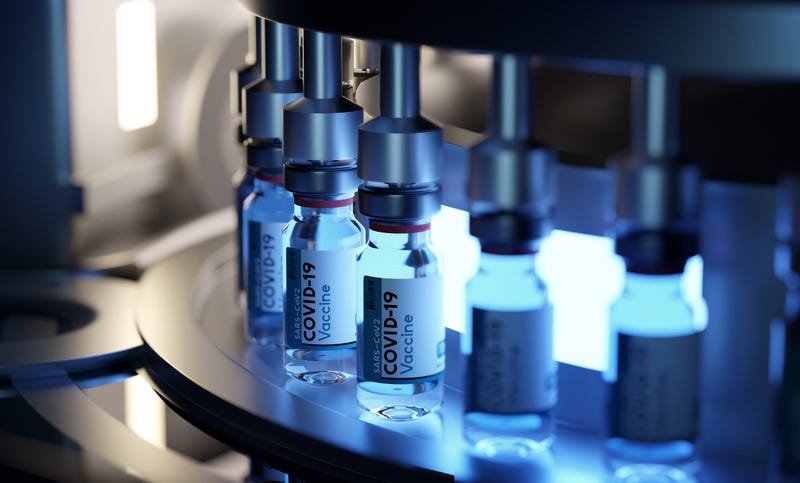
Tuesday marked the one-year anniversary of the Pfizer vaccine first being distributed in the United States.
Although it’s been a year, the pandemic has not progressed as many would have hoped, particularly with the country’s vaccination efforts.
Most health experts assumed that people would be relieved and enthusiastic about receiving the vaccine, particularly after the uncertainty of 2020, said Dr. Deepta Bhattacharya, Associate Professor of Immunobiology at the University of Arizona on KCBS Radio's "Ask an Expert" with Holly Quan and Dan Mitchinson on Tuesday.

"The truth of the matter is that this technology of vaccine is new to a lot of people, even though it’s actually been under development for quite some time," he said. "I think it just had people a little bit nervous."
But regardless, medical professionals were confident in the vaccine's effectiveness based on the extensive testing done at the time. When the results of the vaccine's clinical trials showed how much better protected people were against the virus, Bhattacharya was impressed.
"I think in all my years as a scientist that was still the most exciting day, and the most beautiful piece of data I’ve ever seen and will probably ever see again," he said.
As the vaccine became more widely distributed, the reasons people had for refusing to get jabbed became more diverse, he said. "Certainly you have some people who believe bizarre conspiracy theories," he said. "But there’s a lot of other people that are just a little bit nervous, and they slowly come around."
That group needs a nonjudgemental explanation of how the vaccine works. "I still think there are people you can bring around just by being reasonable and nonjudgmental," said Bhattacharya.
But this has been made further complicated by the omicron variant, which based on a recent study appears to be more resistant to vaccines, but causes less severe illness.
"It's complicated as to exactly what the basis of the mildness that people have been talking about is," he said. But even if the virus is able to slip past the first wall of defense, the antibodies, the body has other protections.
The question is, is the omicron variant milder because so many people have been vaccinated at this point, or is this new phase of the virus intrinsically milder, he asked. "My best guess is that it’s the former, it’s basically encountering people that have some degree of immunity, and that’s ascribing the severity of the symptoms down."
The study, published Tuesday by Discovery Health, a South African private health insurance administrator, found that up against omicron, the Pfizer vaccine provides 70% protection against severe illness requiring hospitalization, and 33% protection against infection overall.
Reinfection risk is also much higher with omicron than other variants, the study found. But the severity of illness requiring hospitalization is 29% lower with omicron.
For those still nervous about vaccination, Bhattacharya recommends informing instead of trying to persuade, he said. Explaining how the vaccines work, what has been found, has been the best method.
"That makes it a little easier for people to come to their own conclusion, and hopefully the right one," he said.

